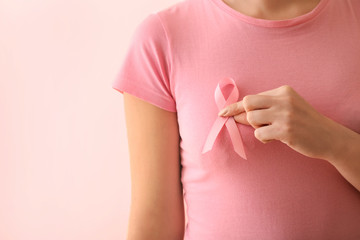

Breast cancer is a complex disease, and various factors can contribute to its development. Family history of breast cancer, exposure to radiation, obesity, and alcohol consumption are indeed some of the known risk factors. Genetics also play a role, as certain gene mutations, such as BRCA1 and BRCA2, can increase the risk of developing breast cancer.
Although both male and female can affect to breast cancer, women are more likely to get the disease due to prolonged exposure of their breast cells to the female hormones produced by the ovaries, specifically progesterone and estrogen.
While 5% to 10% of cases of breast cancer are known to be inherited, the risk of this second most common cancer in women rises with age. whose direct blood relations suffer from the disease. Women who have relatives with breast cancer are also at a higher risk of developing the disease. Breast cancer risk is higher in women with dense breast tissue because they have less fatty tissue and more glandular tissue.
Symptoms of breast cancer
Breast cancer symptoms can differ from person to person and can take many different forms.
Common signs and symptoms include :
1. Lump in your breast
2. Change in the size of your breast
3. Noticing changes to the skin around your breasts
Reasons of breast cancer in women
Age: As people age, their chance of breast cancer increases. Diagnoses for breast cancer usually happen after the age of 50.
Genetics: Breast cancer risk can be considerably increased by inherited genetic mutations, such as those identified in the BRCA1 and BRCA2 genes. Compared to women without the abnormalities, those who carry these genes have a significantly increased lifetime risk of breast cancer. In order to understand their risk factors, those with a family history of breast cancer should think about getting genetic testing and counseling.
Family History /Personal History: The chance of developing breast cancer is significantly influenced by both personal and family history. You have a higher risk if you have a close relative who has breast cancer, particularly if it's a first-degree relative such as a mother, sister, or daughter. Also, you have a higher chance of getting cancer in the other breast or in a different area of the same breast if you have already had breast cancer in one of your breasts. Your risk may also be raised by some non-cancerous breast conditions.
Radiation exposure : Previous chest radiation therapy, particularly in childhood or adolescence, may raise the chance of developing breast cancer at later in life. This is why doctors take this history into account when assessing an individual's risk for breast cancer.
Reproductive history: Breast cancer risk factors include never having children, late menopause (beyond age 55), and early menstruation (before age 12). These elements have been linked to a lifetime of exposure to hormones that can affect the development of breast cancer, such as estrogen.
Lifestyle factors : Lifestyle factors such as obesity, lack of physical activity, alcohol consumption, and hormone replacement therapy can indeed increase the risk of breast cancer.